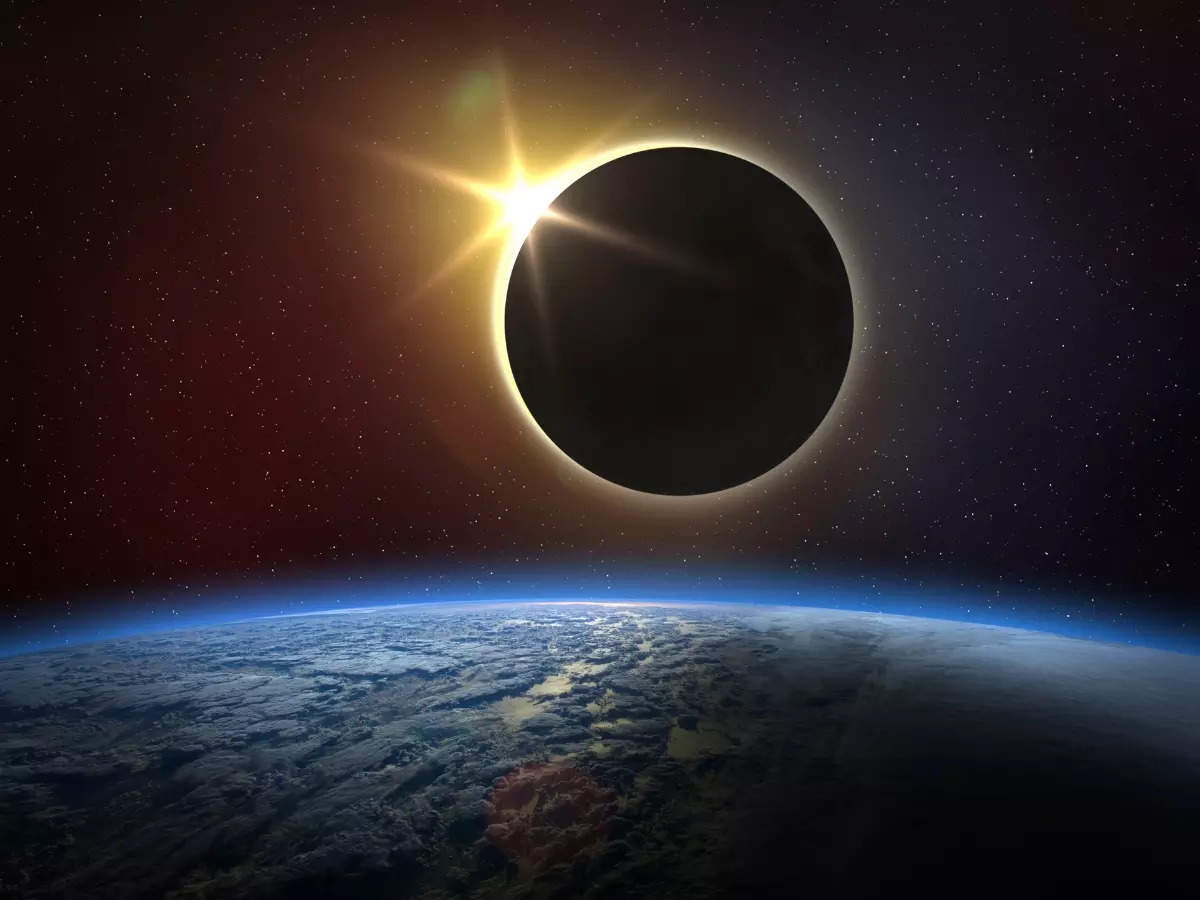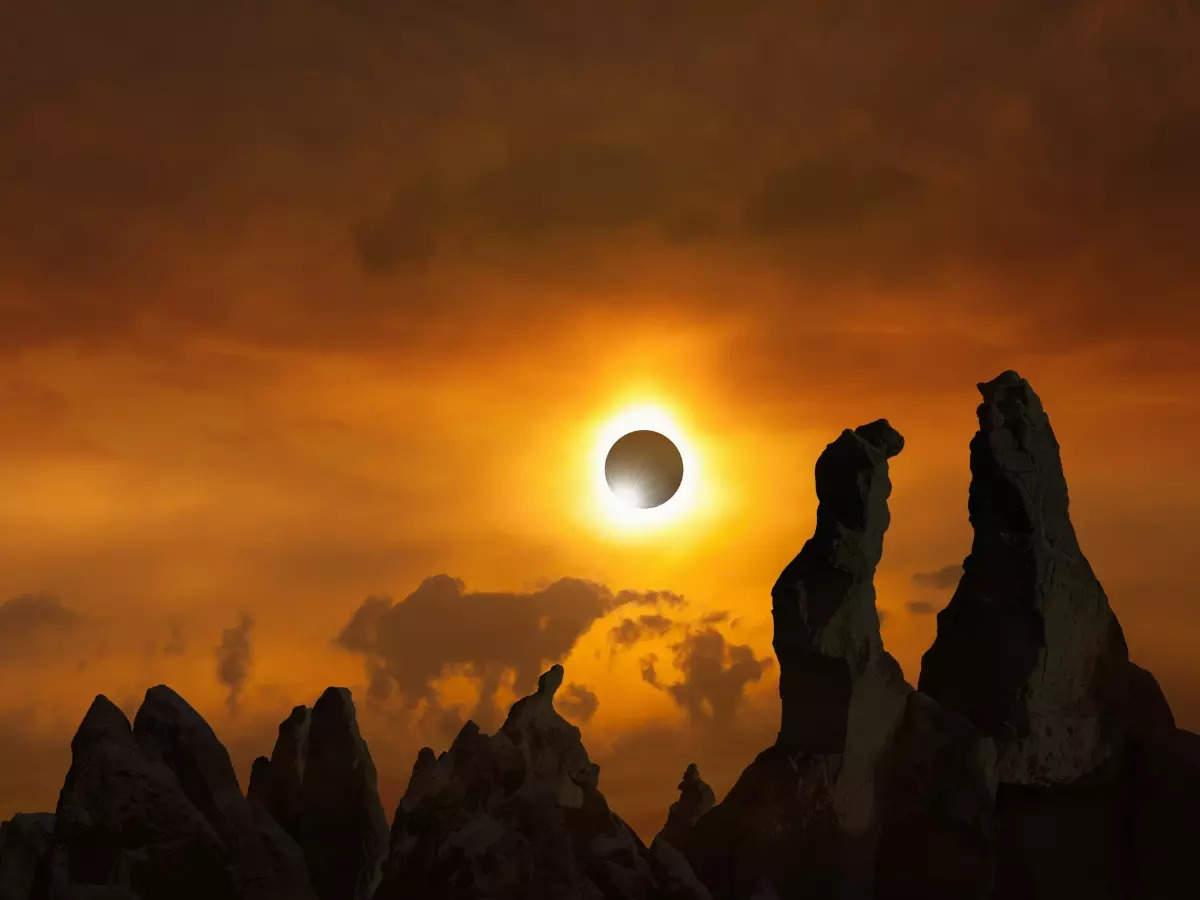
A complete solar eclipse happens when the visible size of the moon aligns perfectly with that of the Sun, resulting in a precise blocking of the Sun’s light. As the shadow of the moon swiftly moves across the Earth’s surface, those situated within the narrow path of totality witness a mesmerising phenomenon: the Sun’s corona, its outer layer, gleaming like a brilliant halo encircling the obscured disk of the moon. This otherworldly exhibition endures for just a brief span, yet it etches a profound memory for all fortunate observers.
The first Solar Eclipse of 2024 is slated for April 8 and regrettably will not be visible from India.
10 things to do in Dharamshala
FacebookTwitterPintrest
At intervals, the universe offers a breathtaking cosmic phenomenon: the total solar eclipse. This extraordinary event occurs when the moon passes between Earth and the Sun, casting its shadow over our planet and momentarily turning day into night. While witnessing a total solar eclipse is a rare chance for many, it’s important to approach it with caution and preparedness.

According to detailed analyses from NASA, this Total Solar Eclipse will sweep across the continent of North America, traversing through Mexico, the United States, and Canada. It’s worth noting that Mexico will be the fortunate first to witness this celestial event, particularly in areas along the Pacific coast, with the eclipse expected to commence around 11:07 am local time. Subsequently, the eclipse’s path will weave through various locales in the United States, including states such as Texas, Oklahoma, Arkansas, Missouri, Illinois, Kentucky, Indiana, Ohio, Pennsylvania, New York, Vermont, New Hampshire, and Maine. Notably, residents of Tennessee and Michigan will also have the rare opportunity to experience the totality of the solar eclipse.
Finally, the eclipse’s journey will extend into Canada, particularly encompassing regions of Southern Ontario, Quebec, New Brunswick, Prince Edward Island, and Cape Breton. This celestial spectacle promises to captivate observers across the continent as the moon momentarily obscures the sun, casting an ethereal shadow upon the Earth.
Here are some precautions to observe when viewing a total solar eclipse:
Avoid direct eye contact with the sun: Gazing directly at the Sun, even during a partial eclipse, can lead to permanent eye damage or blindness. It’s essential to always use proper eye protection, such as solar viewing glasses or solar filters, to observe the eclipse safely.
Don’t solely rely on technology: While cameras, telescopes, and smartphones can enhance your eclipse viewing experience, remember to take moments to directly observe the eclipse with your own eyes. Balancing technology with personal observation allows for a fuller appreciation of the event.
Adhere to safety measures: Total solar eclipses often draw large crowds, so it’s crucial to remain aware of your surroundings and adhere to local safety guidelines and regulations. Avoid congested areas and potential hazards to ensure a safe and enjoyable experience for everyone involved.
Total solar eclipses are brief occurrences lasting only a few minutes, so it’s important to be prepared to fully embrace the fleeting window of totality. Keep track of time and be ready to marvel at the mesmerising sight of the Sun’s corona encircling the darkened moon.

Here are some notable locations where you can witness the total solar eclipse:
Mazatlán, Sinaloa, Mexico: Positioned along the Pacific Coast, Mazatlán has a storied history of attracting eclipse enthusiasts. Situated less than 12 miles southeast of the initial touch of the Moon’s umbra, Mazatlán provides an optimal vantage point for experiencing the breathtaking spectacle of a total solar eclipse.
Nazas, Durango, Mexico: Located in the state of Durango, Nazas is expected to draw a substantial number of visitors due to its close proximity to the point of longest totality. Despite being a small town with a population of approximately 4,000 residents, Nazas anticipates welcoming numerous eclipse enthusiasts eager to witness the celestial event. Positioned just east of Durango Paso Nacional, Nazas offers an unparalleled viewing opportunity for those seeking to observe the entire duration of totality.
Piedras Negras, Coahuila, Mexico: Positioned across the Rio Grande River from Eagle Pass, Texas, Piedras Negras is a bustling city renowned for its vibrant culture and rich heritage. Its strategic location makes it an ideal hub for eclipse chasers seeking to witness the celestial phenomenon amidst an urban setting filled with vibrancy.
Radar Base, Texas: Situated along the U.S.–Mexico border, Radar Base is gearing up to host a significant influx of eclipse chasers eager to witness the celestial event within the path of totality. Despite its modest size, this small town promises an unforgettable viewing experience for visitors, offering a unique vantage point along the eclipse’s trajectory.
Also read: Did you know it’s illegal to drive dirty cars in this country?

Indianapolis, Indiana: Serving as the capital city of the state, Indianapolis boasts ample lodging options and attractions, making it a coveted destination for eclipse enthusiasts. With its dynamic downtown area and diverse cultural offerings, Indianapolis guarantees an unforgettable eclipse-watching experience for both residents and visitors.
Niagara Falls, New York: Providing a picturesque backdrop for eclipse viewing, Niagara Falls promises breathtaking perspectives of the event against the iconic natural wonder. As per reports, accommodations in the area are filling up rapidly, indicating high interest in witnessing the celestial spectacle.
Also read: Did you know that you can’t carry this chilli in your hand baggage?
Ontario, Canada: Designated locations for public viewing in the Niagara Falls area in Ontario include Old Fort Erie, Kingsbridge Park, Sandie Bellows Plaza at the Niagara Parks Power Station and Tunnel, Table Rock Centre, Queen Victoria Park, Oakes Garden Theatre, Botanical Gardens, Niagara Glen, and Queenston Heights Park.
Montreal, Quebec, Canada: Several spots in Montreal offer prime viewing opportunities, including the Science Centre, Parc Jean-Drapeau, and Old Port. Additionally, McGill University will host a viewing party featuring activities and educational demonstrations on campus. Mount Royal Park also falls within the path of totality, providing another excellent option for eclipse viewing.
>>> Read full article>>>
Copyright for syndicated content belongs to the linked Source : Time Of India Travel – https://timesofindia.indiatimes.com/travel/travel-news/solar-eclipse-2024-when-where-to-watch-visibility-in-india-how-long-it-will-last-all-you-need-to-know-about-it/articleshow/109071785.cms











